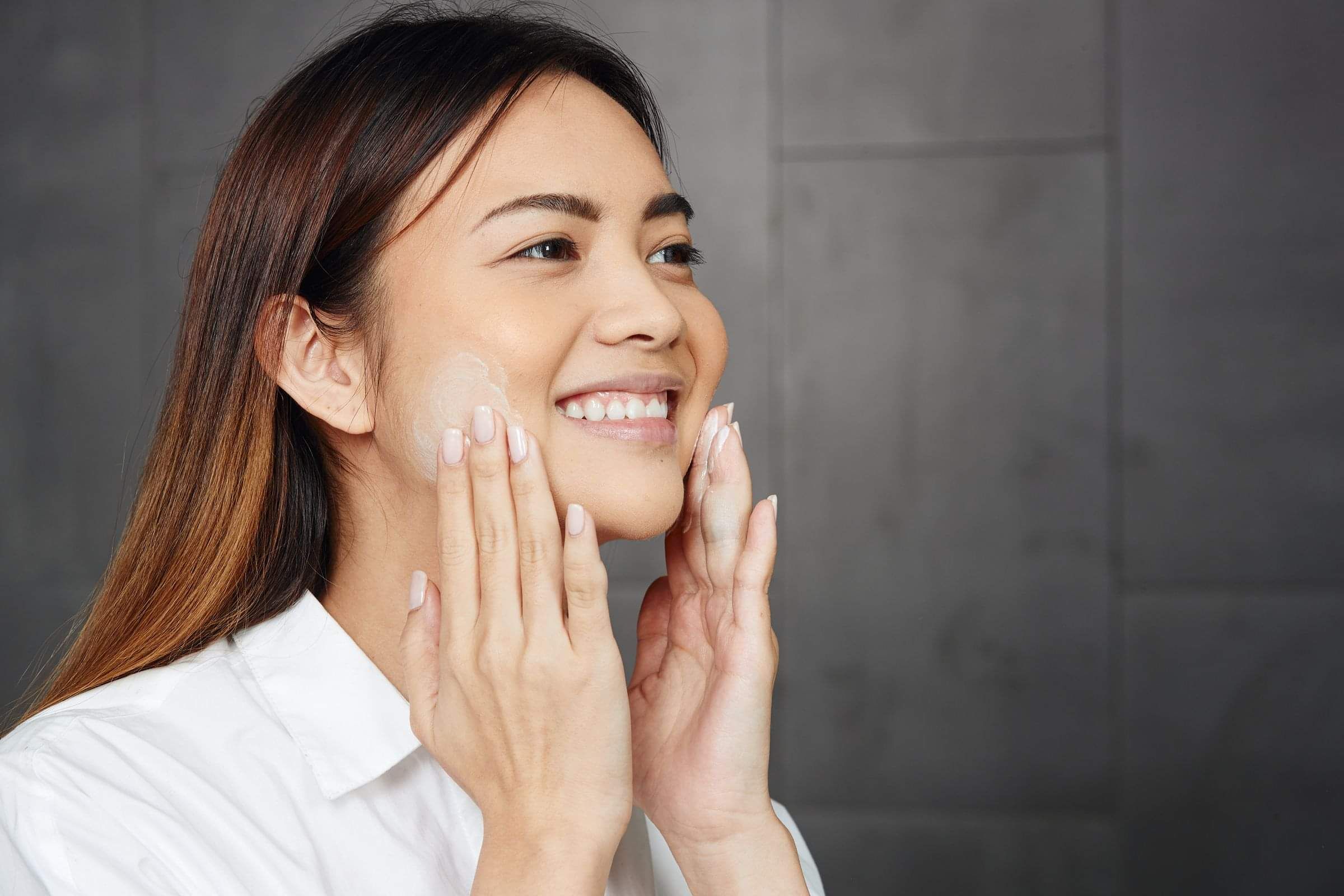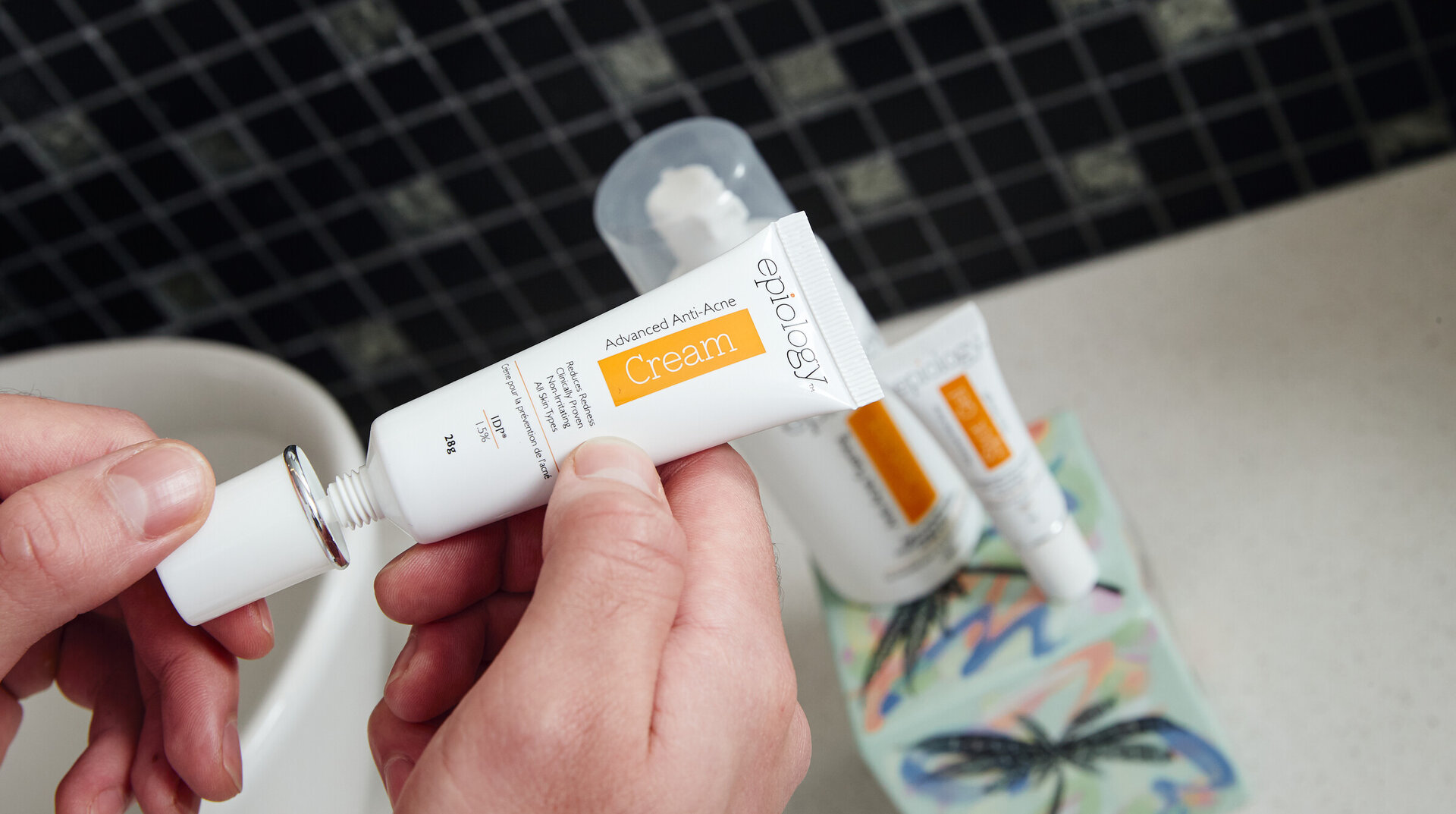Got a question about Epiology?
Is Epiology safe for long-term, preventative use?
Yes, the Epiology acne skincare range is completely safe for long term, preventative use, day and night. In addition to its anti-bacterial properties, the bio-protein complex in Epiology prevents the spread of acne causing bacteria, actively calming the skin and soothing the redness associated with acne.
Can Epiology be used under makeup?
Yes! It can be used under makeup and is suitable for all skin types. The Advanced Anti-Acne Cream creates the perfect matte finish under makeup.
Is Epiology suitable for men?
Absolutely. The Epiology acne skincare range is fragrance and colour free, and can even be used instead of soap-based shaving foams that typically aggravate the skin.
Can I use Epiology alongside prescription acne medication?
Epiology is completely safe for use in combination with prescribed acne medication such as tetracycline or isotretinoin. The Advanced Anti-Acne cream will help keep skin hydrated and reduce the dryness and redness that may be associated with the use of isotretinoin.
Is Epiology safe to use in pregnancy?
Yes, all of the Epiology acne skincare range is completely safe to use during pregnancy.
Acne and general skincare
Why is acne most common in teenagers?
During puberty there is an increase in the amount of oil (sebum) produced in the skin. The skin on the face, neck and back has lots of hair follicles (pores), and these become blocked with oil which provides the ideal environment for acne bacteria to grow.
Is adult acne different to teenage acne?
Adult acne is more likely to be reddish nodules around the mouth, jawline and on the chin as opposed to the whiteheads and blackheads that typically occur for teenagers on the forehead, nose and cheeks. Hormonal changes are the most common causes of acne, so women are more likely to experience adult acne than men.

Are acne products designed for teenagers OK for adults to use?
In general, over-the-counter products for acne are suitable for all ages, however many of them tend to have a drying, irritating effect on the skin (because they aim to reduce oil), which can also have a harsh effect on sensitive skin.
Epiology is particularly useful for adult skin because it doesn’t have the side-effect of dryness, and it combines a lightly moisturising effect with its proven anti-acne properties.
Are some people more acne-prone than others?
People with sensitive skin are more prone to acne because they’re more likely to have a reaction to the presence of bacteria or damage to the skin. That’s why it’s important to avoid damaging the skin with sunburn or by using harsh skincare and strong exfoliators and toners. Damage to the skin is likely to set off an acne attack a few days later because the skin increases oil (sebum) production as a protective response.
Can I prevent spots from developing?
Epiology’s Extra Strength Spot Gel is particularly effective against those “hot spots” you can feel developing under the skin. It reduces the redness of the spot and prevents the spread of bacteria which, left untreated, can lead to acne.
Are exfoliants useful in treating acne?
Exfoliants can have a similar effect to over-the-counter acne treatments that contain salicylic acid. While they can be useful in clearing blocked pores, continued over-use can increase sebum production and cause redness in sensitive skin. The occasional exfoliation won’t hurt though.
Should I squeeze my pimples? Even the really bad ones?
No! Squeezing can make your skin take longer to heal because it often drives bacteria deeper into the pore and can cause scarring. Try to keep your hands away from your face as much as possible to avoid spreading bacteria from your fingers to your skin.
Does chocolate cause pimples?
Experts agree that too much sugar is never a good idea and eating well is part of having healthy skin – but the occasional sweet treat will not give you acne.






